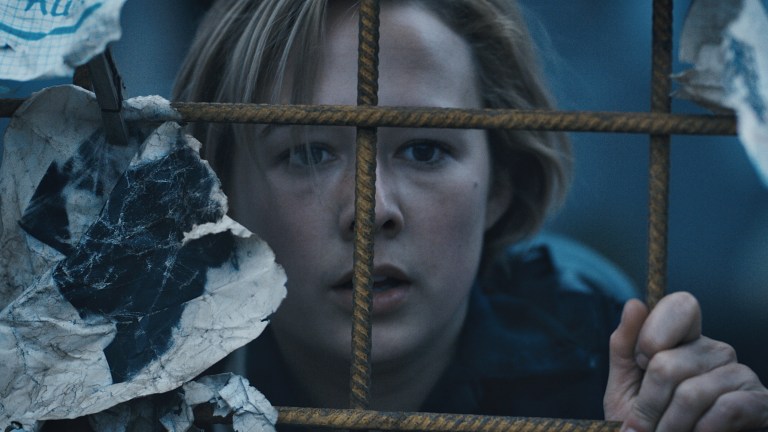The Rain Season 3 Review: A Mixed Send-Off For The Underrated Dystopian Drama
The third and final season of The Rain asks whether humanity can survive the aftermath of a deadly virus, and what will be left of it by the end?

Danish Netflix show The Rain has returned for its third and final season in the middle of a very real global pandemic, and has landed in a landscape that’s suddenly thinking a lot more about what might happen to the world a few years after a deadly virus has wiped out most of humanity. A cheery thought? Absolutely not, but a concern that surely permeated the late-stage creation and marketing of the show.
From the first episode, it’s clear that there have been some revisions in the writers room since last season, with the driving force for the characters proposed at the end of season two—to get out of the quarantine zone and into the wider outside world—completed and discarded within the first 30 minutes or so. These guys are in it for the long-haul, the sequence posits, and the only way out is to find a cure for the virus.
There are also a couple of seemingly irreversible elements of the finale that are indeed reversed, and by the end of the season those decisions haven’t really been justified. There’s more to do for Fie and Kira, at least, and the latter in particular adds some much-needed tactical know-how into the mix.
So as with season two’s crop of newbies, there are a new bunch of characters to get to know over the course of season three. Unfortunately they’re not as successful, and the overcrowding means there’s little room for established players like Jean and Patrick to make much of an impression. Some of the best new characters introduced in the middle of the season do not become long-term players, while a family who have been somewhat shielded from the effects of the virus become major players after our gang comes in to disrupt their idyllic existence.
The rather outlandish idea of making the virus into a cloud of killer black smoke, which made the second season feel much more like a sci-fi thriller than the humanistic dystopian drama it began as, is doubled down on to the point where the title becomes pretty irrelevant. Now that Rasmus has more of a handle on his powers and has partnered with Apollen, the plan is to spread, rather than eradicate, the virus.
This about-turn obviously isn’t popular with Simone, who’s endless optimism about a better world is somewhat interrogated this season. From the start she has been less weathered by the end of the world than the rest simply because she was able to ride out the first six years in relative safety, but being confronted by her brothers’ power-hungry vanity means that she’s suddenly got a lot more skin in the game.
The divide of the group into anti and pro-virus camps is an interesting way to examine the thesis of the series—which is after all what the final episodes of any show should do—as the early centering of the less jaded idealism of youth being replaced with its darker cousin: blind hubris. Rasmus believes he can save the world for little other reason than he thinks he’s invincible and others should be too. The audience, of course, knows this is probably untrue.
It’s a failure of the season that Rasmus is so universally unlikeable throughout, but then he was never the strongest link. But without Lea and with Jean acting as more of a background character than ever before, some of the heart has been lost just before the end. That’s not to say that there aren’t lighter moments—the relationship between Patrick and Fie is a definite highlight—but it’s a shame for things to end as bleakly as they do.
But how do these episodes serve as a capper to the larger narrative? It’s a mixed bag, with new characters never really filling the hole left by those previously lost in the way they’re clearly designed to, but existing arcs are served pretty well (with a few exceptions). How you felt about the aforementioned black smoke will colour how you see the more elaborate sci-fi elements introduced, though a lot can be forgiven if the characters come through strongly.
That’s not always the case, but season three doesn’t betray what the rest of The Rain has been doing. Having been underrated for much of its run, it’s nice to imagine future bingers sitting down to consume all 16-episodes in one chunk, preferably after our current virus fears have been forgotten and we can get back to using dystopias as pure escapism.